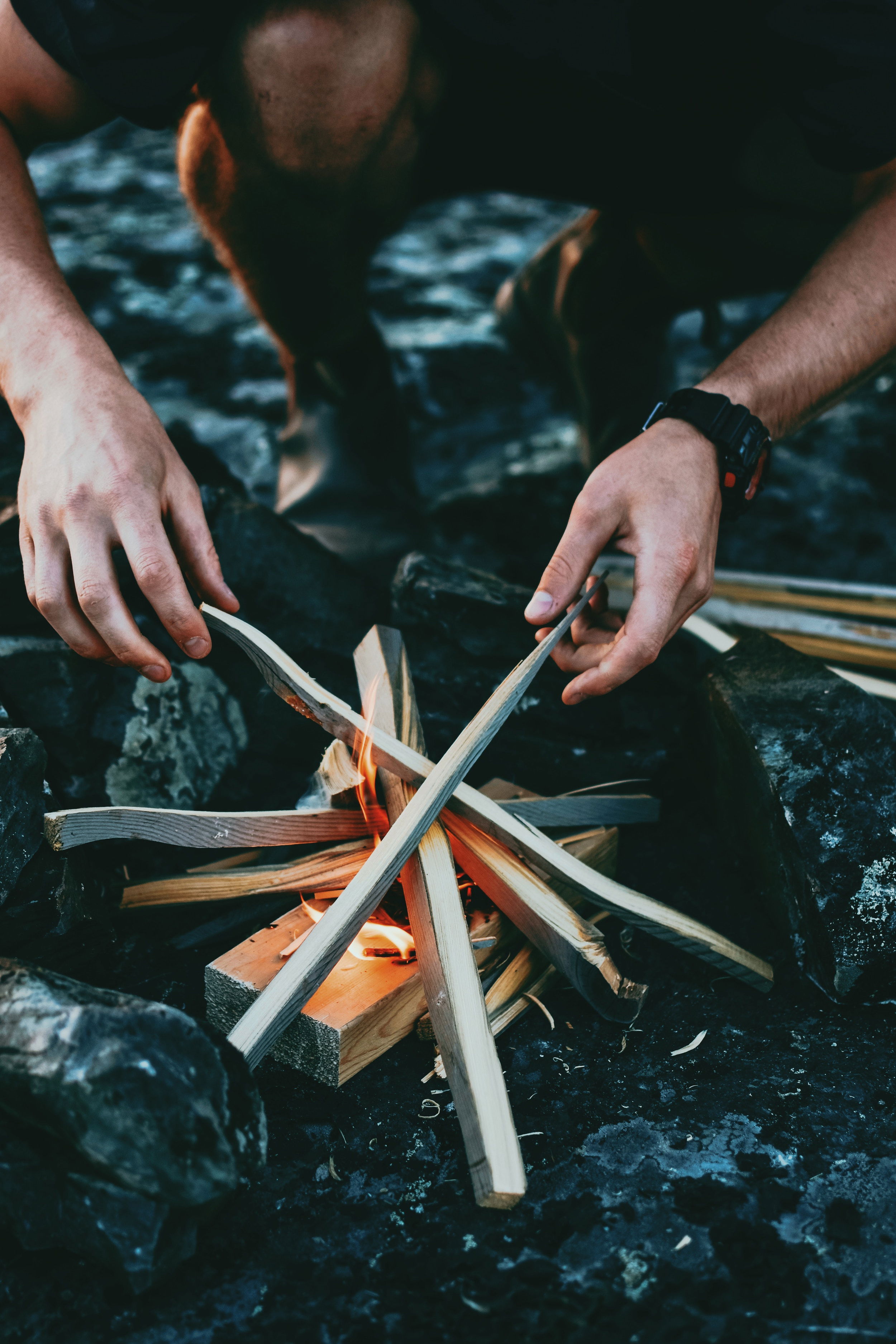Surviving the Wild: Essential Skills for Outdoor Adventures
The call of the wild has always beckoned to adventurous souls, drawing them away from the comfort of urban life and into the great outdoors. Whether it's hiking in pristine forests, camping beneath a star-studded sky, or embarking on a backcountry expedition, outdoor adventures offer a unique blend of excitement and serenity. However, to truly thrive in nature's embrace, it's crucial to possess essential survival skills. In this article, we'll delve into these skills and provide you with the knowledge you need to navigate, endure, and enjoy your outdoor experiences to the fullest.

Navigation and Orienteering
Map Reading: One of the fundamental skills for outdoor enthusiasts is the ability to read topographical maps. Maps provide crucial information about terrain, landmarks, and potential hazards.
Compass Use: Learning how to use a compass is equally vital. It allows you to determine directions accurately and maintain your bearings even when you're off the beaten path.
GPS Navigation: While traditional map and compass skills are essential, modern GPS devices and smartphone apps can be valuable tools for navigation. However, it's wise to have backup methods in case of technology failures.
Shelter Building
Tent Setup: Knowing how to set up a tent properly is key for a comfortable and safe night's sleep in the wilderness. Practice pitching your tent before heading into the wild.
Emergency Shelters: In unexpected situations, such as getting caught in bad weather, having the ability to create emergency shelters using natural materials can be a lifesaver.
Fire Starting
Fire Building: Fire is not only a source of warmth but also a means to purify water and cook food. Learn different fire-starting techniques, including using matches, lighters, and primitive methods like friction fire.
Fire Safety: Equally important is knowing how to manage fires safely, ensuring they don't spread uncontrollably or cause harm to the environment.
Water Procurement
Water Sources: Identifying safe water sources in the wild is essential. Learn to recognize signs of clean water and ways to filter or purify it, such as using water filters, iodine tablets, or boiling.
Hydration: Staying hydrated is critical for outdoor survival. Carry an adequate supply of water and know when and where to replenish it.
Food Foraging and Preparation
Edible Plants: Familiarize yourself with edible plants and berries in your region, as well as those that should be avoided. Books and field guides can be valuable resources.
Hunting and Fishing: If you're comfortable with it and it's legal in your area, hunting and fishing can provide a source of fresh food. Ensure you have the necessary permits and equipment.
Cooking Skills: Cooking over an open fire or with portable camp stoves requires some skill. Practice cooking simple meals to ensure you can adequately nourish yourself in the wild.
First Aid and Medical Knowledge
First Aid Kit: Always carry a well-stocked first aid kit tailored to outdoor adventures. Learn how to use its contents for common injuries and ailments.
Basic Medical Skills: Understanding how to address injuries like cuts, sprains, and insect bites is crucial. Take a wilderness first aid course to enhance your knowledge.
Wildlife Awareness
Animal Behavior: Knowledge of local wildlife and their behavior is essential for safety. Understand how to avoid encounters and what to do if you encounter dangerous animals.
Bear Safety: If you're in bear country, be well-versed in bear safety practices, including proper food storage and using bear-resistant containers.
Survival Psychology
Stay Calm: Maintaining a calm and rational mindset during emergencies is crucial. Panic can lead to poor decision-making.
Positive Attitude: A positive attitude can significantly impact your survival. Stay optimistic and resourceful in challenging situations.
Leave No Trace Principles
Environmental Stewardship: Practicing Leave No Trace principles helps protect the natural beauty of the outdoors. Minimize your impact by following these guidelines.
Pack Out Your Waste: Dispose of waste responsibly by adhering to the "pack it in, pack it out" philosophy.

Sources and Further Learning
- National Outdoor Leadership School (NOLS) - Navigation Skills
- Outdoor Safety Institute - Wilderness First Aid Courses
- U.S. Forest Service - Bear Safety
- Leave No Trace Center for Outdoor Ethics
- American Red Cross - Wilderness and Remote First Aid
Surviving and thriving in the wild requires a combination of knowledge, practice, and respect for the environment. Whether you're an experienced outdoor enthusiast or a beginner, continuous learning and honing of survival skills will ensure that you can fully embrace the wonders of nature while staying safe and responsible. So, venture into the wilderness, explore its mysteries, and remember to leave no trace but footprints behind.